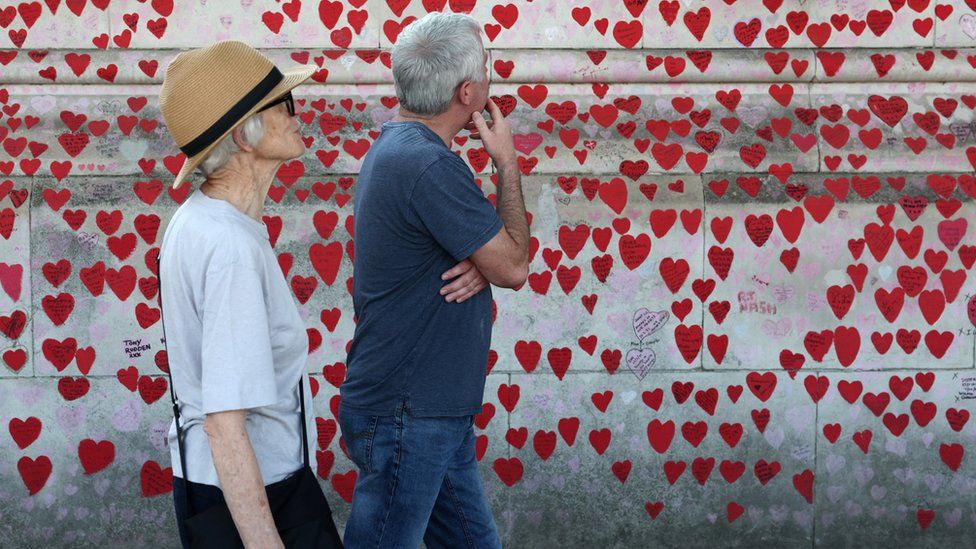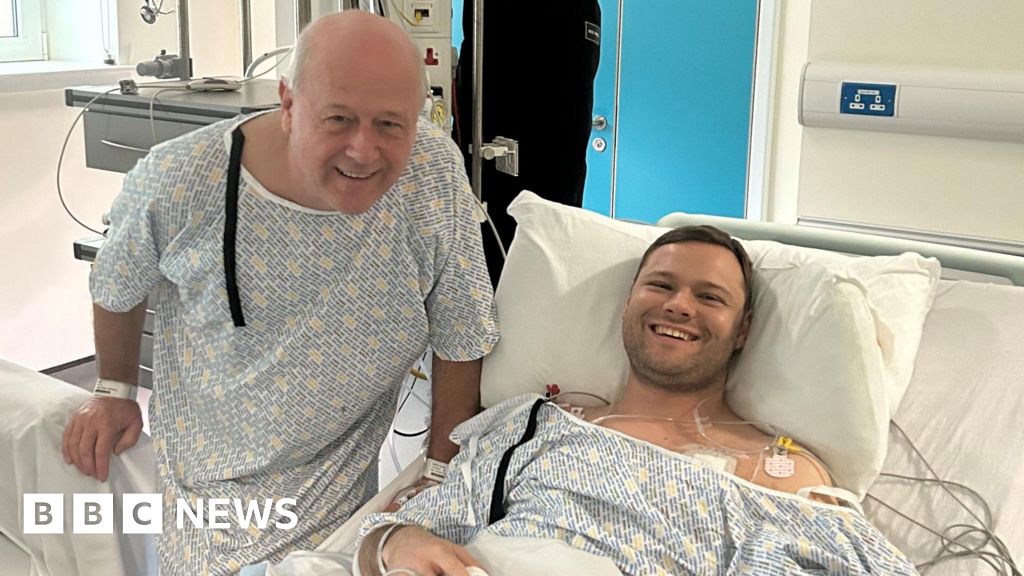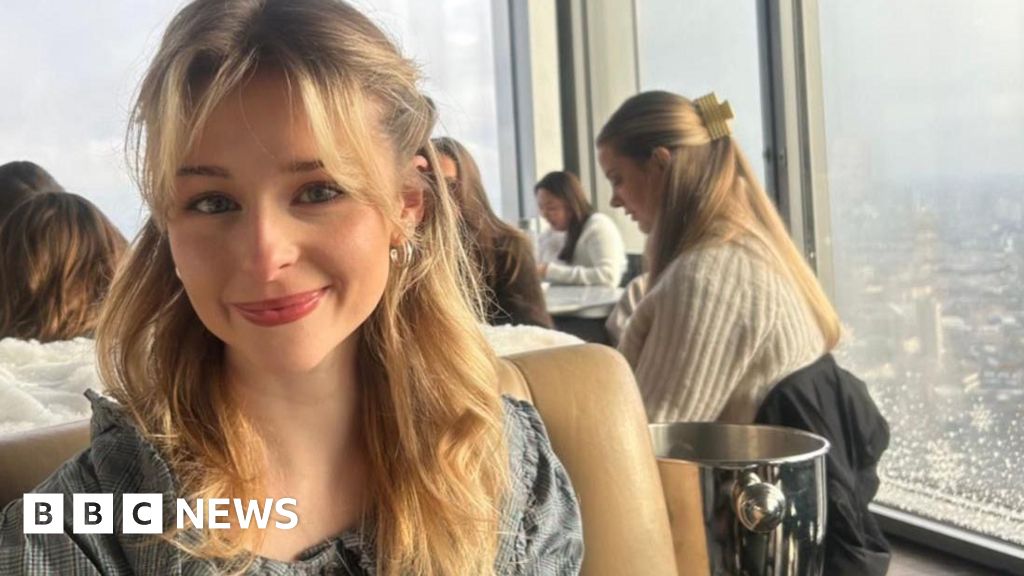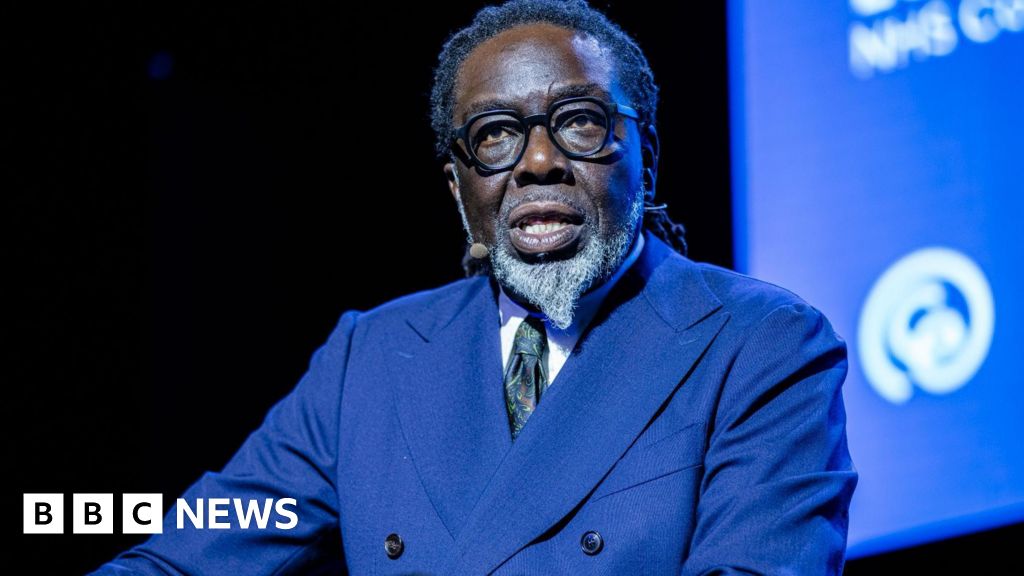ARTICLE AD BOX
 Image source, Reuters
Image source, Reuters
The pandemic was a "confused period akin to war", the lawyer for the Department of Health and Social Care has told the Covid inquiry.
Fiona Scolding KC said the department had been faced with a serious of "hugely unpalatable options" and decisions had been "finely balanced".
With the benefit of hindsight, some of those decisions might have been different, she added.
The public inquiry on the UK's response to Covid has finished its second day.
The first part of the inquiry - called Resilience and preparedness - will hear from key politicians, civil servants, scientists, unions, health and care organisations, as well as groups representing victims and their relatives.
Over the next six weeks, about 70 people are expected to take the stand on this subject.
- Was the UK properly prepared?
- Was the response appropriate?
- What lessons can be learned for the future?
The lead lawyer for the inquiry, Hugo Keith KC, described the "death, misery and incalculable loss" caused by the virus, saying the UK may not have been well prepared "at all".
On Wednesday, in her opening statement, Ms Scolding said the government would not argue it had got everything right in its response to Covid.
"Contrary decisions could rationally have been made resulting in a different set of outcomes," she said.
But the pandemic had been the "greatest challenge ever faced by the NHS and care sector".
And it was necessary "to recognise the context of the time was very different to what we know now".
Ms Scolding asked the inquiry "not to impose a retroscope on decision making" but described testing and diagnostics as a "significant weakness" in the early part of the pandemic, compared with that in some other countries.
Matthew Hill, from the Government Office for Science, which also represents current and former chief scientific advisers, told the inquiry the UK had had other areas of weakness when the pandemic started, including the:
- absence of a major diagnostic industry
- underlying health inequalities and conditions within the UK population
- lack of excess capacity in the NHS - even in normal times
There were questions over the investment in public-health infrastructure before Covid and "whether it had responded effectively to previous pandemic threats".
And it was important to maintain advances made during the pandemic, such as they way data was collected and presented.
The role of the Scientific Advisory Group for Emergencies (Sage), scientists who met regularly during the pandemic, was to provide independent scientific advice to the UK government, not to decide policy, which was the job of politicians and decision makers, taking into account other factors like economics and education, Mr Hill said.
"It is for them, and not the experts, to weigh the competing factors against one another, make the trade-offs and come to decision on policy," he added.
The first two experts questioned on Wednesday afternoon - both epidemiologists - said a coronavirus had already jumped to humans on a significant scale twice in the 21st Century, in the form of severe acute respiratory syndrome (Sars) and Middle East respiratory syndrome (Mers).
And it had been "a reasonable bet", before 2020, another one might follow, infectious-diseases expert and former professor of international public health Jimmy Whitworth said.
By mid-January 2020, people in the international public-health community had been aware the Covid-19 outbreak had been "out of the ordinary", he said.
"It wasn't going to die away - it was something bigger than that," Mr Whitworth said.
And by end of January, people in public health had been very clear it had been "an impending wave that was coming to UK".
"For those of us who had memories of Sars, the parallels were something that gave us shivers", Mr Whitworth added.
Asked about the dangers of a virus being leaked, deliberately or accidentally, from a laboratory, Cambridge University fellow in emerging infectious diseases Dr Charlotte Hammer said she was aware of four incidents involving the Sars virus.
But when it came to controlling an outbreak once it had started to infect thousands of people, the virus's origins mattered "very little".
What is the UK Covid-19 inquiry?
- It is about going through what happened and learning lessons
- No-one will be found guilty or innocent
- Any recommendations made do not have to be adopted by governments
- The inquiry has no formal deadline but is due to hold public hearings until 2026
- Scotland is holding a separate inquiry in addition to the wider UK one
Watch: Bereaved families express their loss, in a film shown to the inquiry
How many Covid deaths have there been?
The UK saw one of the worst first waves of Covid in Europe, in spring 2020.
In April and May that year, about 160,000 deaths were registered - 60,000 more than expected, based on the years just before the pandemic.
But by that winter, the UK had been overtaken by many countries in Eastern Europe that had seemed to escape the first wave.
The UK's Office for National Statistics has continued to analyse these figures for Europe and, as of July last year, put the UK in the middle of the pack.
According to Department of Health figures, 227,321 people across the UK died with Covid recorded on their death certificate.
Covid vaccines have prevented many deaths and serious illness from the virus - more than 151 million doses have been given in the UK.
Related Internet Links
The BBC is not responsible for the content of external sites.

 2 years ago
61
2 years ago
61








 English (US) ·
English (US) ·